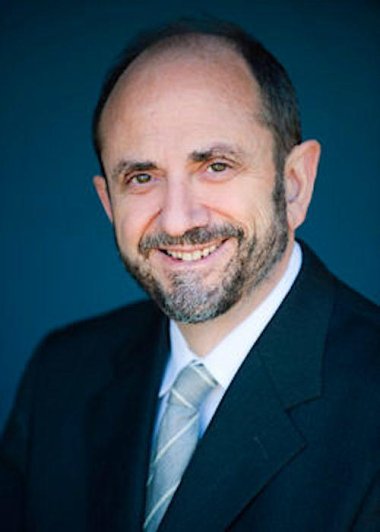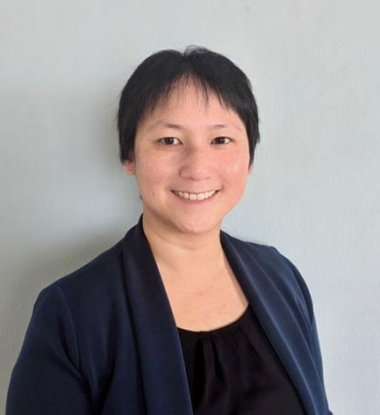
The Australian classical music advocates and comedy act TwoSet Violin are making news with what they are not going to do. The duo, violinists Brett Yang and Eddy Chen, had to cancel their West Coast performances this month — including with the San Francisco Symphony on July 12 and 13 and in Los Angeles, San Diego, and Seattle — because of “visa processing delays.”
Yang and Chen went into the details of their experience in a video posted to the TwoSet Violin YouTube channel last week.
Even in the best of times, handling visas and travel arrangements, especially for large performing arts organizations, is a complex task. And 2025 hasn’t been easy going so far, from musicians deciding to boycott the U.S. in the early days of the second Trump administration to the National Endowment for the Arts revoking already promised grant money this spring (which, in the Bay Area, directly impacted presenters working with international artists). With drastic staff reductions anticipated at the U.S. State Department, further trouble could be looming.
In an NPR survey mentioning how visa holders and even tourists have been caught up in the Trump administration’s current crackdown on immigration, New York attorney Matthew Covey revealed that “reports of ‘unprecedented ICE enforcement’ are prompting dozens of artists to bow out of U.S. tours and reconsider prioritizing the U.S. market.”
Artists usually apply for one of two types of nonimmigrant visas: O-1B and P-1B. The first is for “individuals with extraordinary ability in the arts,” and the second covers members of entertainment groups.
To apply for either of these, assuming the artist isn’t from a country affected by the Trump Administration’s blanket travel ban, a U.S. employer, agent, or organization files a petition with the U.S. Citizenship and Immigration Services (USCIS). Meanwhile, the applicant files a nonimmigrant visa application online and pays the fee of $205. In case of a time crunch, premium processing adds an additional $2,805. USCIS also requires foreign musicians to submit a consultation letter from the American Federation of Musicians.
The petition and supporting documentation are presented in an interview at a U.S. embassy or consulate. “Visa processing times vary from case to case,” says the State Department’s travel website. And of course, an application can be denied.

What is the role of local organizations in all this? Chamber Music San Francisco’s founder and first executive director, Daniel Levenstein, who retired in 2024, and his successor, Jeanette Wong, have 25 years of experience dealing with musicians’ travel and visa arrangements. They have tales to tell.
“In 2023, we had a French string quartet whose second violinist could not get a U.S. visa for love or money,” Levenstein told SF Classical Voice. “Although he was French, he was of Vietnamese extraction and had the commensurate look and name. That’s all we could figure was the reason: racism pure and simple. Anyway, [the quartet] found a replacement in New York City, had one rehearsal, and amazingly it was a seamless performance.”
Levenstein continued: “With the advent of COVID-19, suddenly the risk of cancellation seemed to increase a lot. So, for each of CMSF’s European artists, I identified a U.S. artist to be an understudy [for a $1,000 retainer fee].
“If they were not needed, then they kept the $1,000 with our thanks. If we did need them, they would fly out and perform for a fee of $12,000 plus hotel. Sometimes we would cover airfare as well. This was never needed, but I slept soundly at night.
“Of course, that whole structure went away after [San Francisco’s] Grants for the Arts eliminated our $50,000 a year. Suddenly, understudies were a luxury we could not afford.
“Besides [big performing arts organizations], there are a handful of independent vendors around the country who can handle the [visa] process for [artists] as a third party and charge perhaps $500 or $700 for their services, in addition to the other gruesome expenses from the government. I think their service is well worth it for a small presenter, saving time and headaches.”
Wong, who held high-level positions at the SF Symphony prior to her CMSF appointment, said that artist management usually deals with travel arrangements, while the presenter coordinates a local hotel and ground transportation.

“Usually, if the performance is a one-off in which the artist is coming out only for a presenter’s concert, there will be a travel reimbursement or the fee will be inclusive of travel,” she explained. “If an artist is touring, it’s usually just local hotel and ground that is covered. There’s exceptions to all of this based on how it’s preferred to allocate the fee and reimbursements for tax purposes.
“We haven’t had any direct visa issues for our concerts this season, except for one artist who was getting close to her deadline for another engagement she had last fall. She wasn’t playing with us until the spring, but we shared the application costs with the other U.S. presenters who had also booked her this past season. We ended up chipping in for expedited processing because the original application was taking so long.
“The big choice presenters often have to make is whether it’s worth paying even more for the expedited processing to guarantee you’ll find out status [and have] time to provide any additionally requested documentation.”



